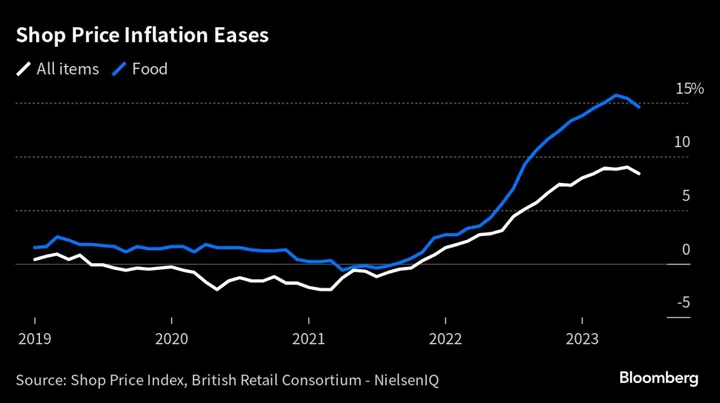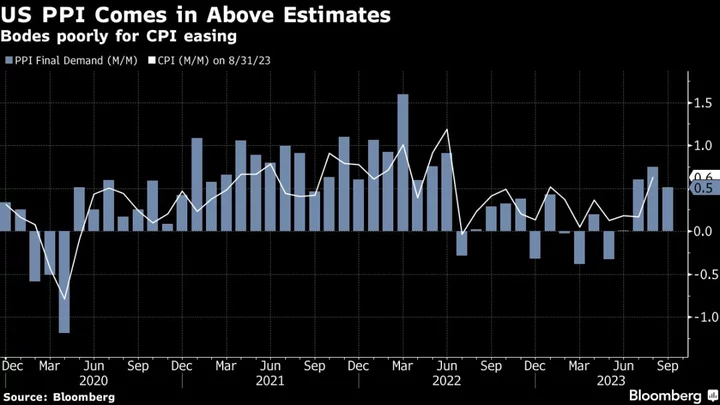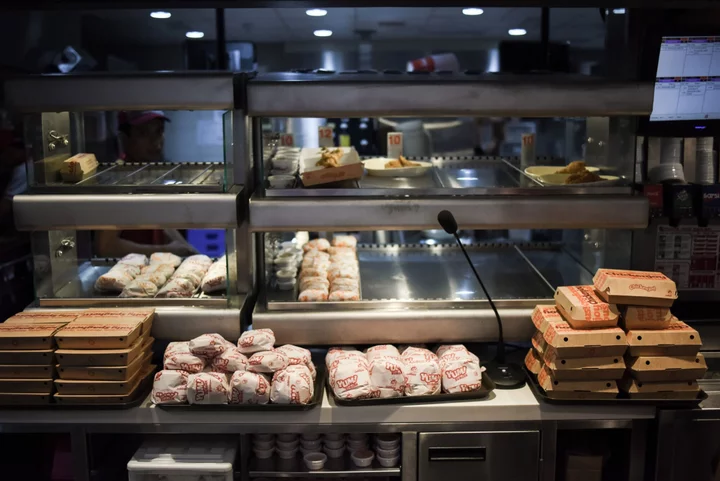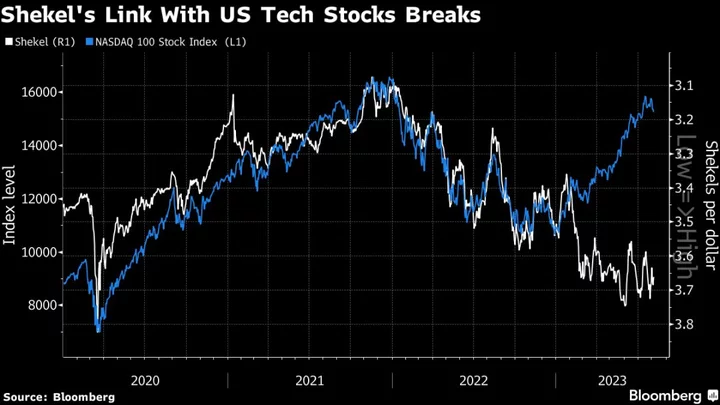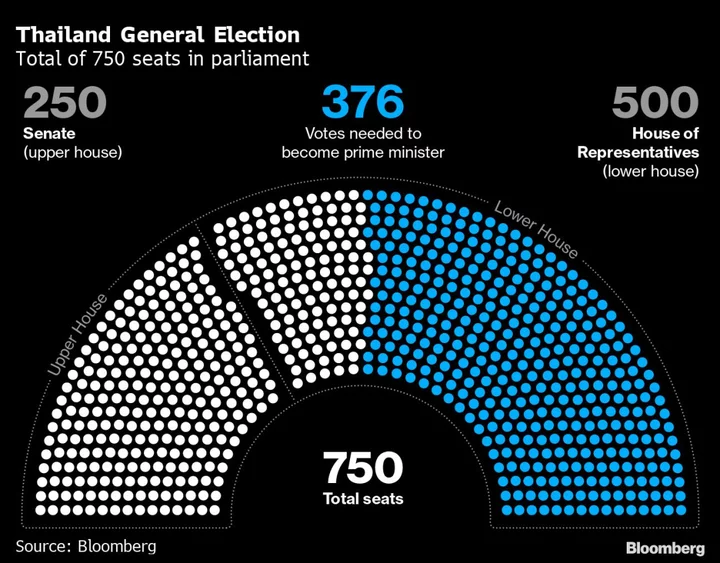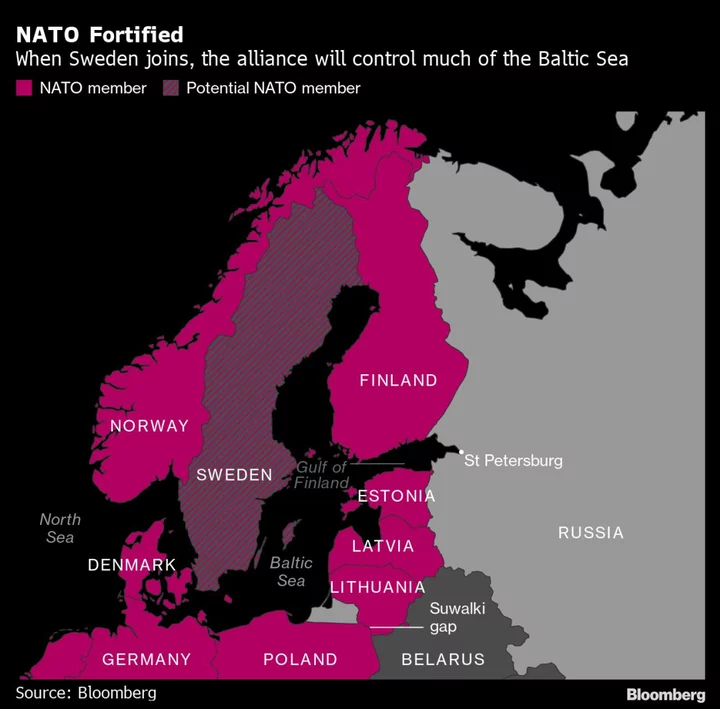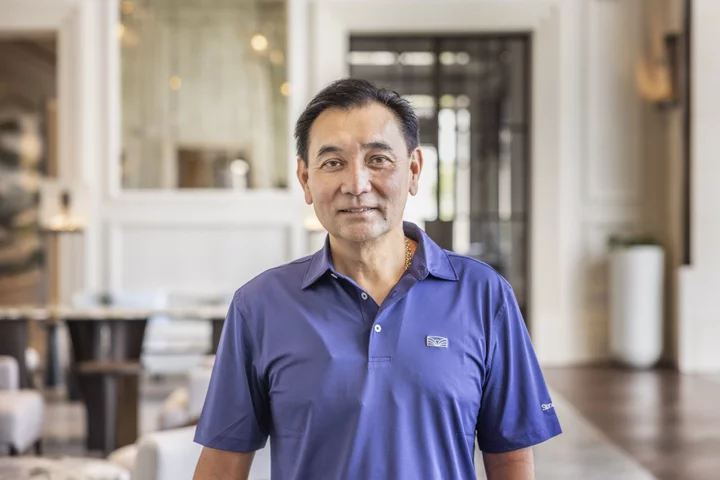Inflation in UK shops dipped this month, offering a glimmer of hope to ministers and central bankers struggling to contain the country’s cost-of-living crisis.
The rate of price hikes slowed to 8.4% in June, the British Retail Consortium said Tuesday, down from a peak of 9% in May. It was the sharpest decline since prices in shops started to rise at the end of 2021 following a period of deflation during the pandemic.
Food price inflation eased for the second consecutive month to 14.6%, down from 15.4%, led by grocers cutting the cost of basics such as milk, cheese and eggs.
“Households up and down the country will welcome the easing of shop price inflation in June,” said Helen Dickinson, chief executive officer at the BRC. “If the current situation continues, food inflation should drop to single digits later this year.”
May’s reading was the fastest rate of price increases since the BRC started its survey in 2005. While the index covers commonly-purchased products in shops, official measures of inflation also include a wider range of goods and services, where cost pressures have been stubborn.
Read More: BOE Set to Tip UK Into Recession by Year End, Economists Say
Inflation has proven particularly sticky in the UK with the consumer prices index rising the same amount in May as the previous month. A larger-than-expected Bank of England rate rise last week jolted markets and drove up the cost of mortgages.
Supermarkets are under scrutiny as food price inflation has remained at elevated levels. Food and non-alcoholic drinks make up just under 12% of the overall CPI basket, which the Office for National Statistics uses to calculate inflation.
Read More: Breakfast Index Falls for the First Time as UK Food Costs Ease
However, bosses have pushed back against the idea that grocers are profiteering. Earlier this week J Sainsbury Plc unveiled plans to make £15 million ($19 million) worth of price cuts on household staples including own-brand pasta, rice and cornflakes. Aldi cut the price of toilet roll this week by 24 pence.
Still, Tesco Plc Chief Executive Officer Ken Murphy has warned that prices are unlikely to return to where they were. Shoppers are still paying more, but the rate of the rises seems to be slowing.
Supermarket representatives from Tesco, Sainsbury, Asda and Morrisons are set to answer questions on pricing Tuesday in front of Members of Parliament on the business committee.
Clothing and electrical goods also saw falling prices in June, the BRC said, as retailers try to entice shoppers spending on their holidays.
“We may now be past the peak of price increases,” said Mike Watkins, head of retailer and business insight at NielsenIQ, which produces the data for the BRC. “However, with most households needing to save money, purchasing behavior for the rest of this year is still likely to shift toward essential needs.”
Why UK Inflation Is So High and Tough to Bring Down: QuickTake
--With assistance from Andrew Atkinson.
(Adds detail from fifth paragraph.)

